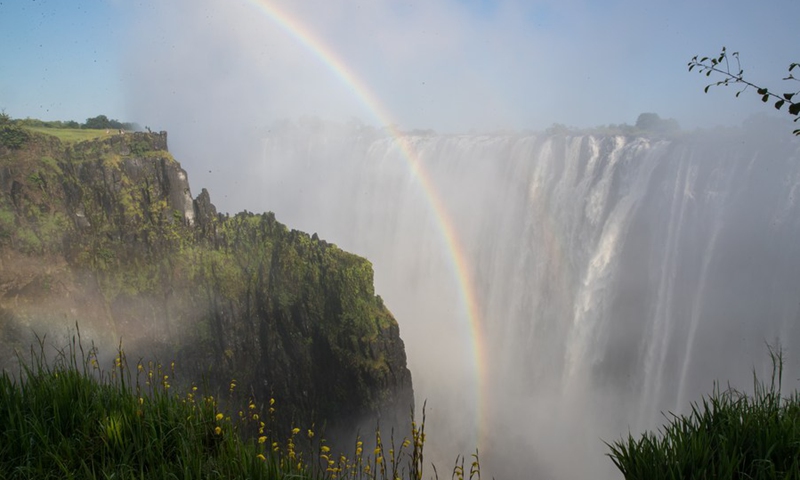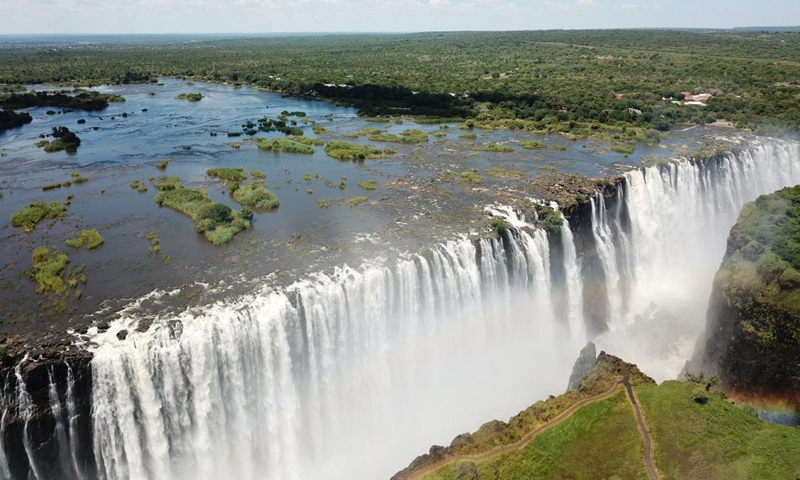
The file photo taken on Feb. 25, 2019 shows a view of Victoria Falls on the border of Zimbabwe and Zambia.(Photo: Xinhua)

The file photo taken on Feb. 24, 2019 shows a view of Victoria Falls on the border of Zimbabwe and Zambia.(Photo: Xinhua)
Domestic tourism is booming in Zimbabwe despite restrictions due to the COVID-19 pandemic, with many hotels and lodges recording brisk business during this festive season, Environment, Climate, Tourism and Hospitality Industry Minister Mangaliso Ndlovu has said.
He told Xinhua Tuesday that many hotels and lodges in the two major cities of Harare and Bulawayo, including some inland resort places, were fully booked with local tourists during this festive season.
He said this will help the operators to sustain their business, considering that the sector is still reeling under the effects of periodic lockdowns since the coronavirus was first detected in the country in March 2020.
"I do not have the figures as yet but what I can confirm is that by and large, tourism facilities in the major cities and other inland resort places have done well on domestic tourism," he said.
"Even when we were red-listed by some countries following the discovery of the Omicron variant, some of our operators were not affected and were fully booked owing to high domestic tourism," Ndlovu said.
Zimbabwe has maintained the COVID-19 Level 2 national lockdown despite the emergence of the Omicron variant at the beginning of this month and has moderately tightened some of the restrictions in a bid to stem the fourth wave of the pandemic.
Some of the measures that President Emmerson Mnangagwa announced to curb the spread of the virus are the enforcement of wearing of masks by all when in public, the scaling down of all government activities to 30 percent, asking businesses to shut down early for the festive season and ordering hotels and lodges to provide room service to their clients as opposed to gathering in restaurants and bars.
Also, the government has imposed restrictions on returning residents and visitors to the country, requiring them to undergo mandatory PCR testing and a 10-day quarantine period regardless of test results.
The government has also announced a 9 p.m. to 6 a.m. curfew and ordered shops to close early at 7 p.m. while customers are not allowed to consume alcohol at bottle stores and nightclubs and bars are allowed to admit vaccinated clients only, among other standing measures to curb the spread of COVID-19.
Ndlovu said the COVID-19 pandemic, however, continues to take a toll on the country's tourism sector, as foreign tourists who are mostly high spenders are not visiting the country.
There was need for the sector to be innovative and creative to stay afloat in the turbulent times of the pandemic, he said.
